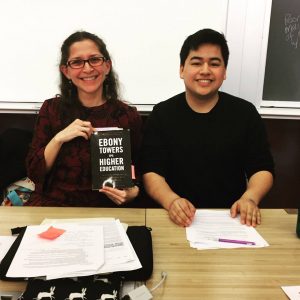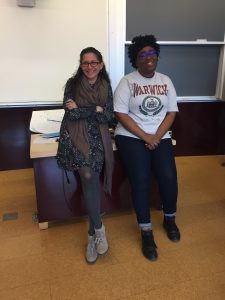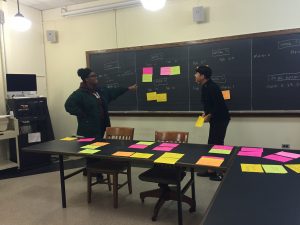
During the Fall 2017 semester, members of the research team designed a new course titled Accessing the Ivory Tower (SOCI/EDUC 232) that was based on all of the reading we had done to put together our 2017 report to the college and the papers we presented at AERA 2018.
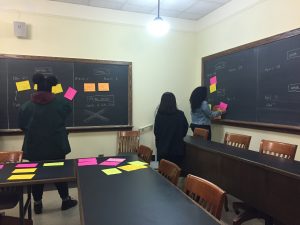
Team members chose the overarching topic of the course, researched existing course syllabi at other colleges and universities, chose the weekly topics and readings that we would cover in the course, and designed the assignments.
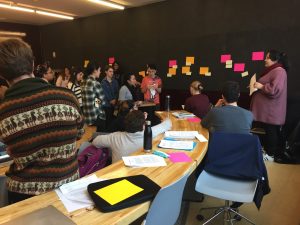
The team debuted the course during the Spring 2018 semester, co-facilitating various class sessions throughout the semester based on team member’s areas of expertise.
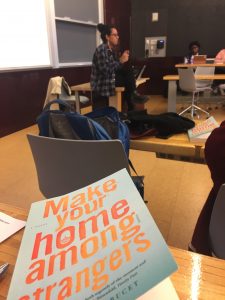
Members of the research team have been involved in updating the course and co-facilitating class sessions whenever Prof. Rueda teaches the course.
****************
SOCI/EDUC 232 Accessing the Ivory Tower
Course Description
Since 2000, there has been a 30% increase in the number of students enrolled in colleges and universities. Over 17 million undergraduates are enrolled in an array of degree-granting institutions across the U.S., with enrollments projected to increase another 14% by 2026. But who goes to college? Focusing on the experiences of historically underrepresented students, this course examines the history of higher education’s expansion and the lived experiences of students navigating higher education. Course content that examines the expansion of access to higher education focuses on important developments at the federal, state, and institutional levels. The course covers topics such as the GI Bill, the 1965 HEA, the formation of the community college system, key court cases that have increased access, state-level legislation (e.g., states that allow undocumented students to apply as residents of the state or make them eligible for state financial aid), and institutional policies concerning admission and financial aid. Course content that focuses on student experiences in higher education explores patterns of racial and socioeconomic stratification within higher education by accounting for students’ varying degrees of college preparedness, choice of college and course of study, campus experiences, persistence to a degree, and post-graduate trajectories. This course aims to uncover how various forms of stratification shape personal relationships with peers, faculty, and administration while in college (e.g., student-faculty relationships, peer interactions, dating, networking, satisfaction with their overall college experience, and the accessibility of higher ed administration).
